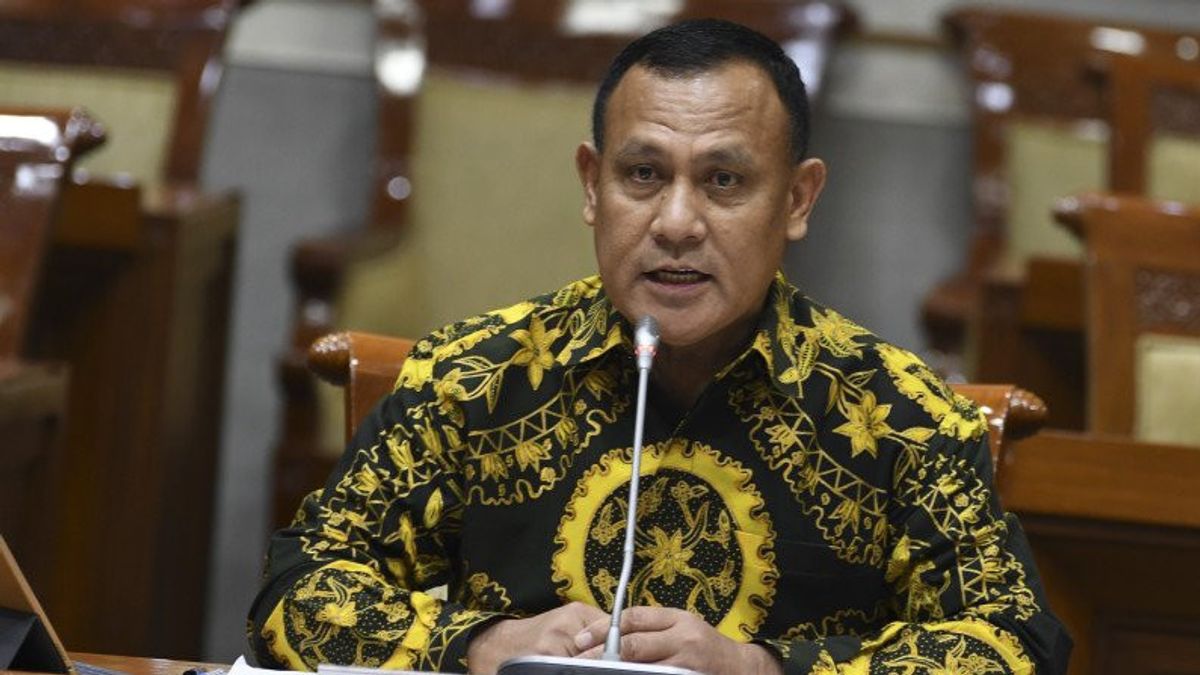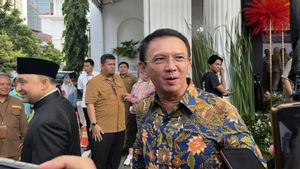JAKARTA - Employees of the Corruption Eradication Commission (KPK) who were declared not to have passed the National Insight Test Assessment (TWK) assessed that their leaders did not understand the point of their reporting to the Indonesian Ombudsman.
This was conveyed by representatives of 75 KPK employees, Hotman Tambunan in response to the statement of position read by the Deputy Chairperson of the KPK, Nurul Ghufron on Thursday, August 5 yesterday.
"It seems that the leadership does not understand the context of public service in the implementation of this TWK. The leadership only dwells on the duties and authorities, even though behind the duties and authorities there is always an element of public service," said Hotman in an online press conference, Friday, August 6.
He emphasized that 75 employees who did not pass the TWK were citizens who were entitled to public services.
Hotman said that the definition of public service in the law is an activity to fulfill the needs according to the legislation for every citizen and resident for goods, services, and/or administrative services organized by public service providers. So, work also falls into that definition.
Moreover, in the implementation of TWK, many public services are involved, such as harmonization of legislation by the Ministry of Law and Human Rights to its implementation by the State Civil Service Agency (BKN).
"Based on the description above, KPK employees who have the right and legal standing to report to the Ombudsman for maladministration in public services in this TWK," said Hotman.

He said that employee reporting to the Indonesian Ombudsman was clearly related to the field of public services, not limited to narrow actions such as rotations, transfers, or other internal affairs of the KPK. Hotman asserted, employees reported a series of TWK processes suspected of maladministration.
"And the scope of the investigation into maladministration of the Indonesian Ombudsman in accordance with Law number 37 of 2008 is in the areas of procedural violations, authority, neglect, incompetence and others," he said.
As previously reported, the Corruption Eradication Commission (KPK) has expressed objections and will not carry out any corrective actions submitted by the Indonesian Ombudsman after maladministration and abuse of authority were found in the TWK implementation process.
There are 13 points of objection from the KPK which resulted in the refusal to carry out corrective actions according to the report of the Ombudsman of the Republic of Indonesia.
Among these points, the KPK considers the Ombudsman to have violated its legal obligation to refuse reports or stop the examination of reports that are known to be under court examination.
The KPK also considers the legal standing of the reporter, that is, employees who are declared not to have passed the TWK are not the people who receive KPK services as parties who have the right to report to the Ombudsman.
Not only that, the KPK said that the corrective actions from the results of the Indonesian Ombudsman's report had no causal relationship and conflicted between the conclusions and the final report.
The English, Chinese, Japanese, Arabic, and French versions are automatically generated by the AI. So there may still be inaccuracies in translating, please always see Indonesian as our main language. (system supported by DigitalSiber.id)













